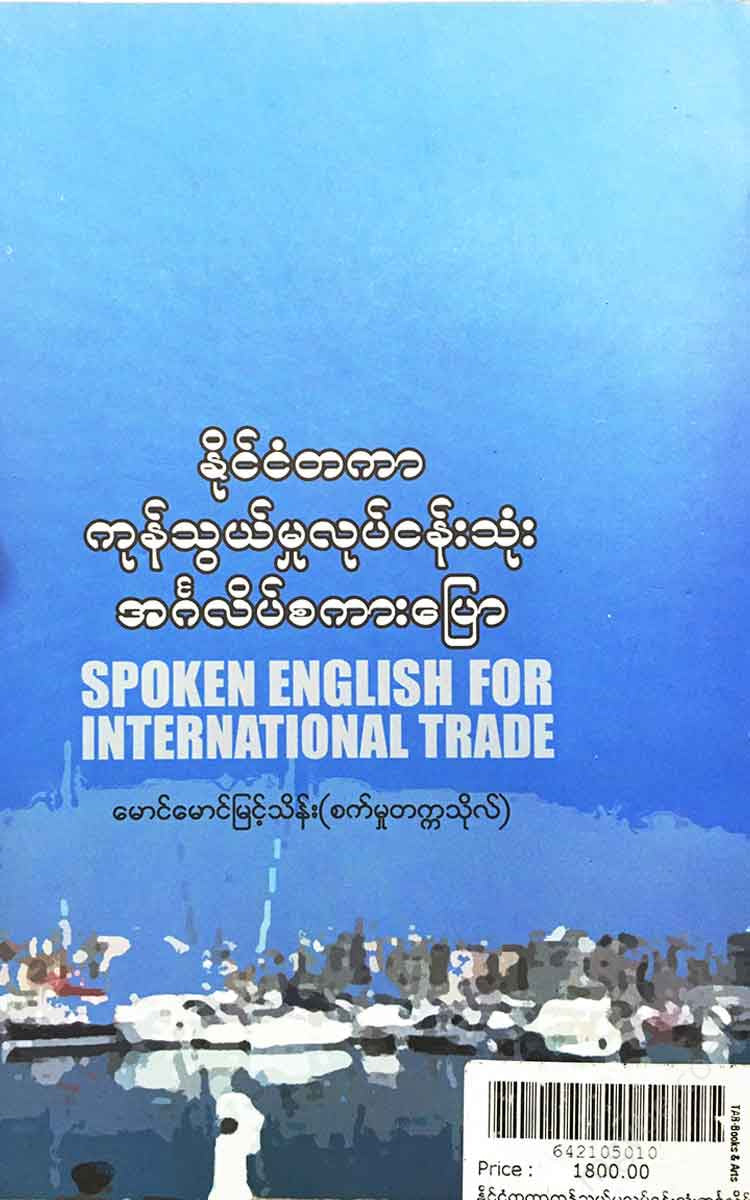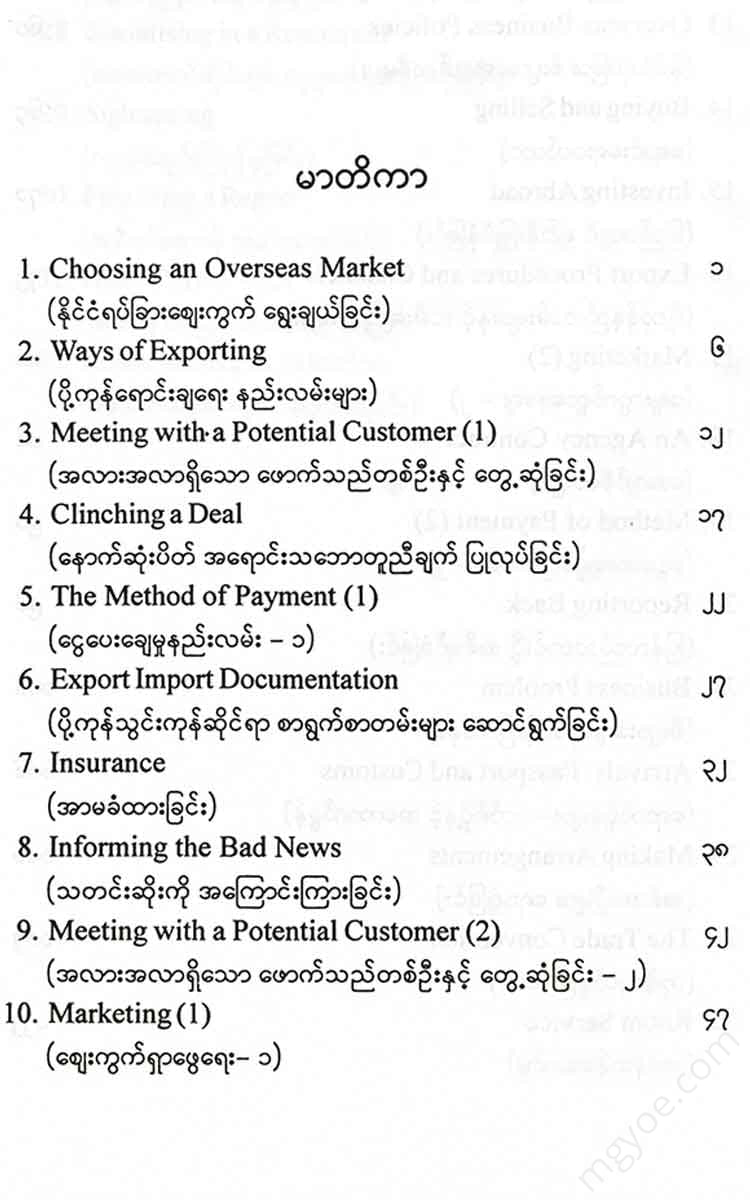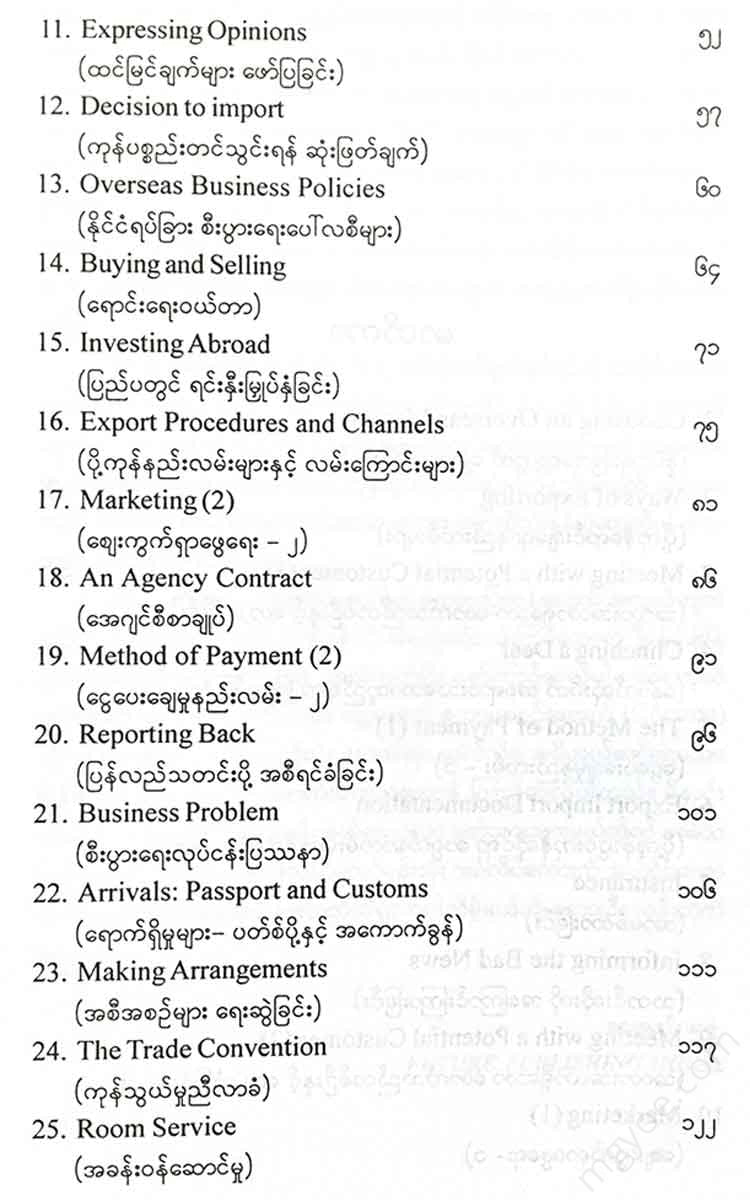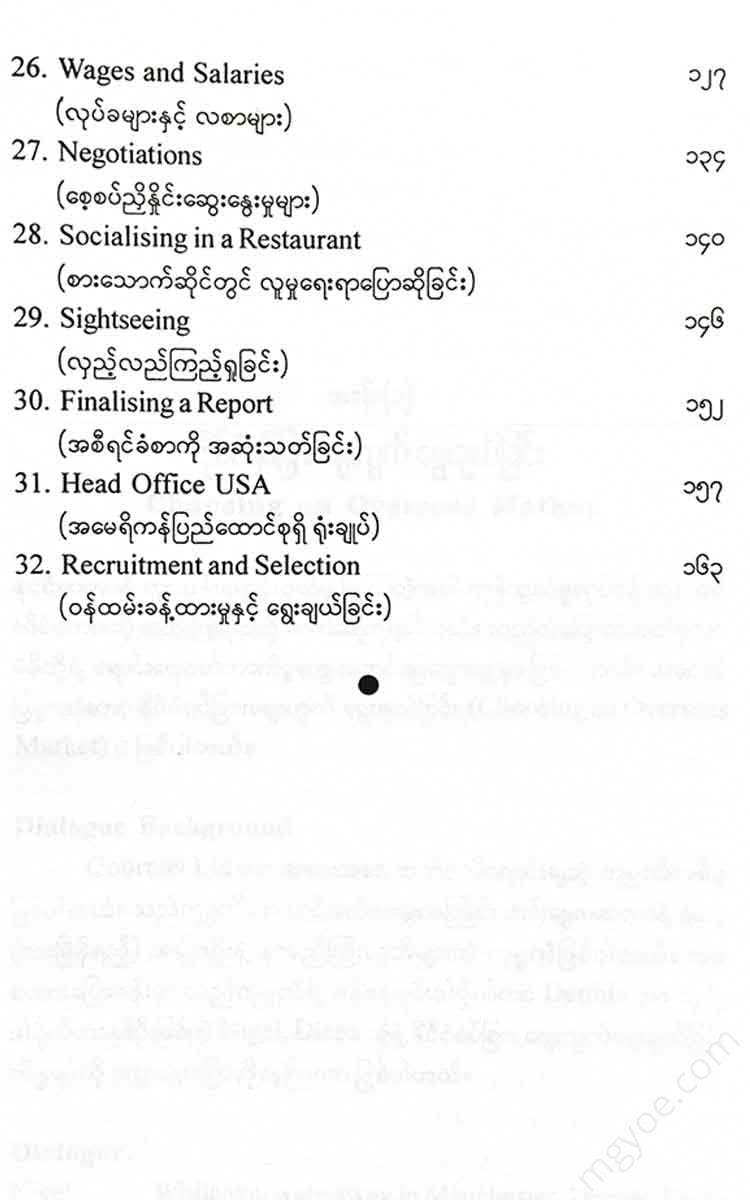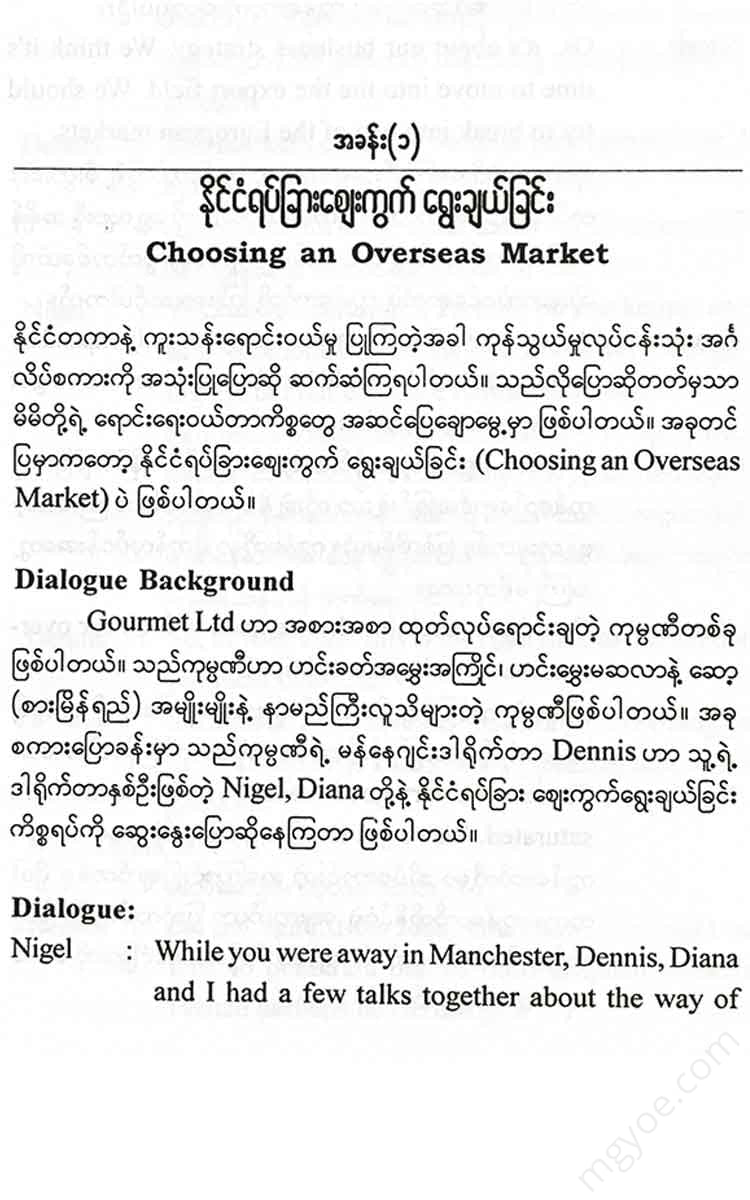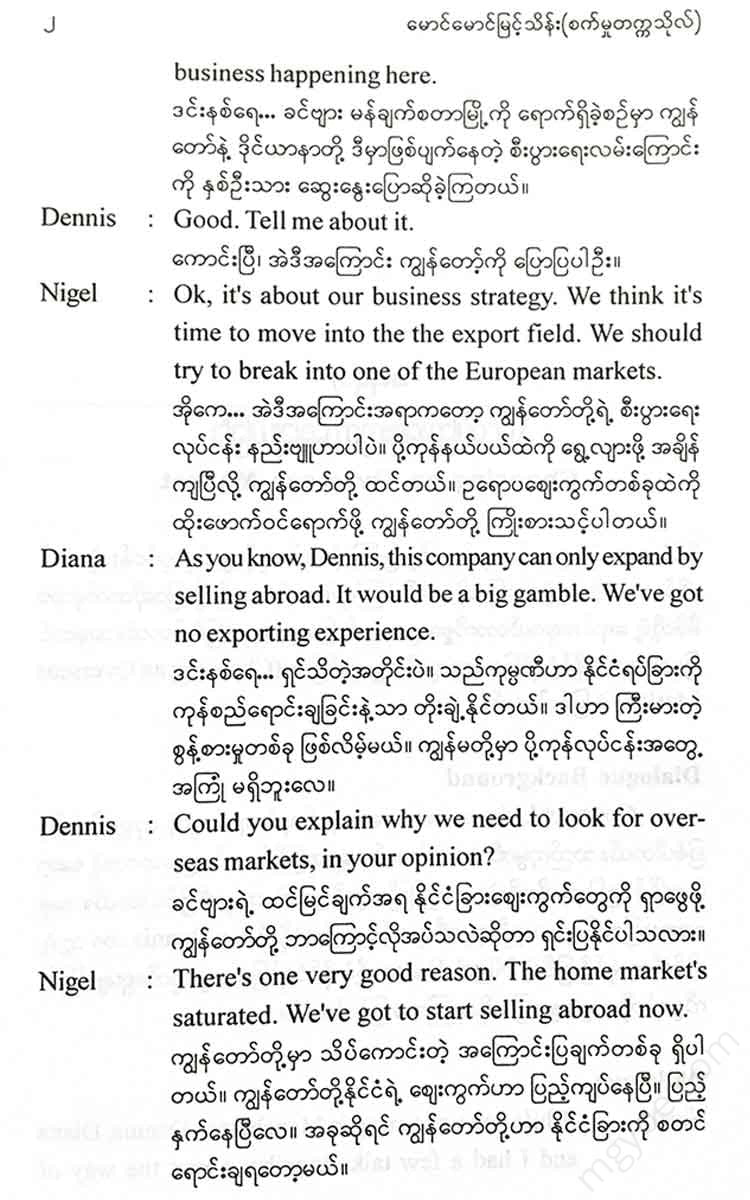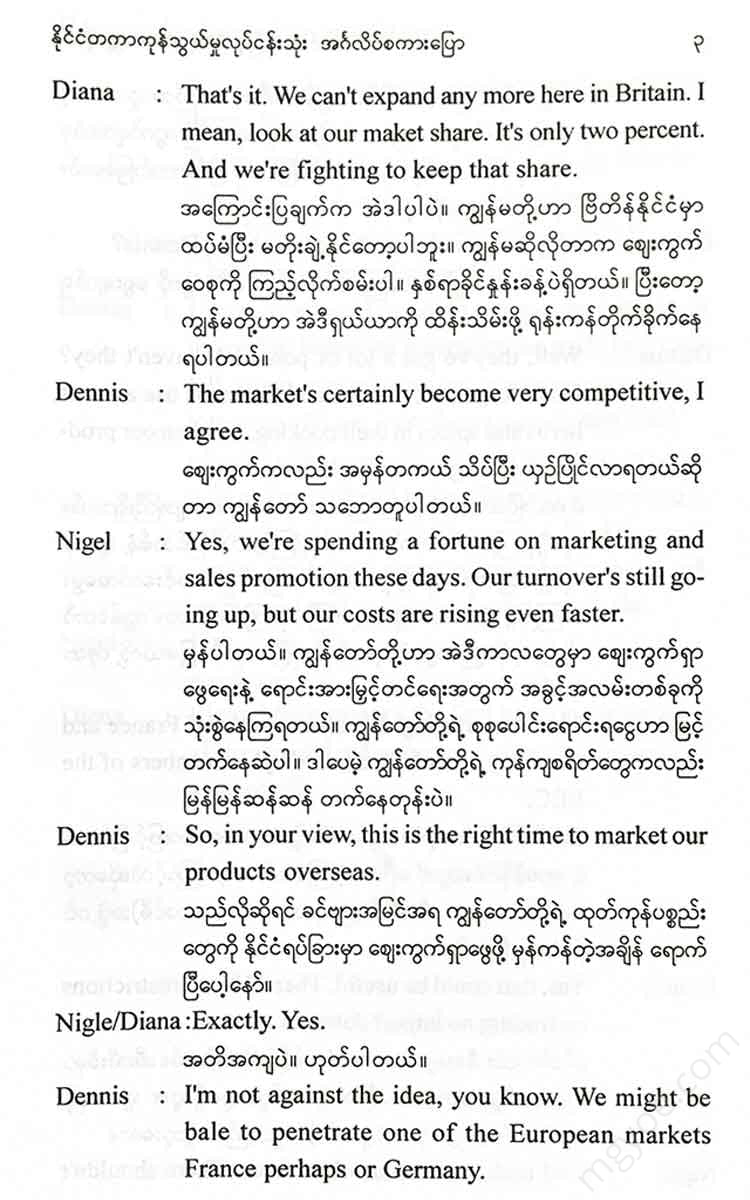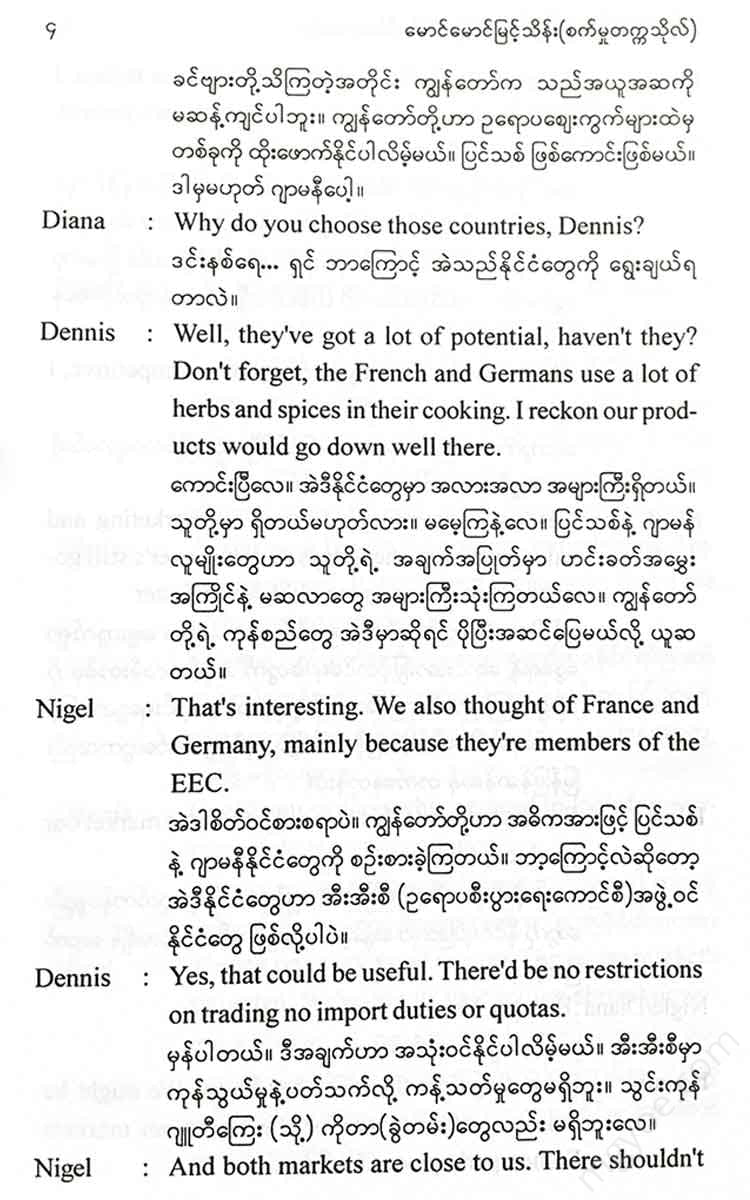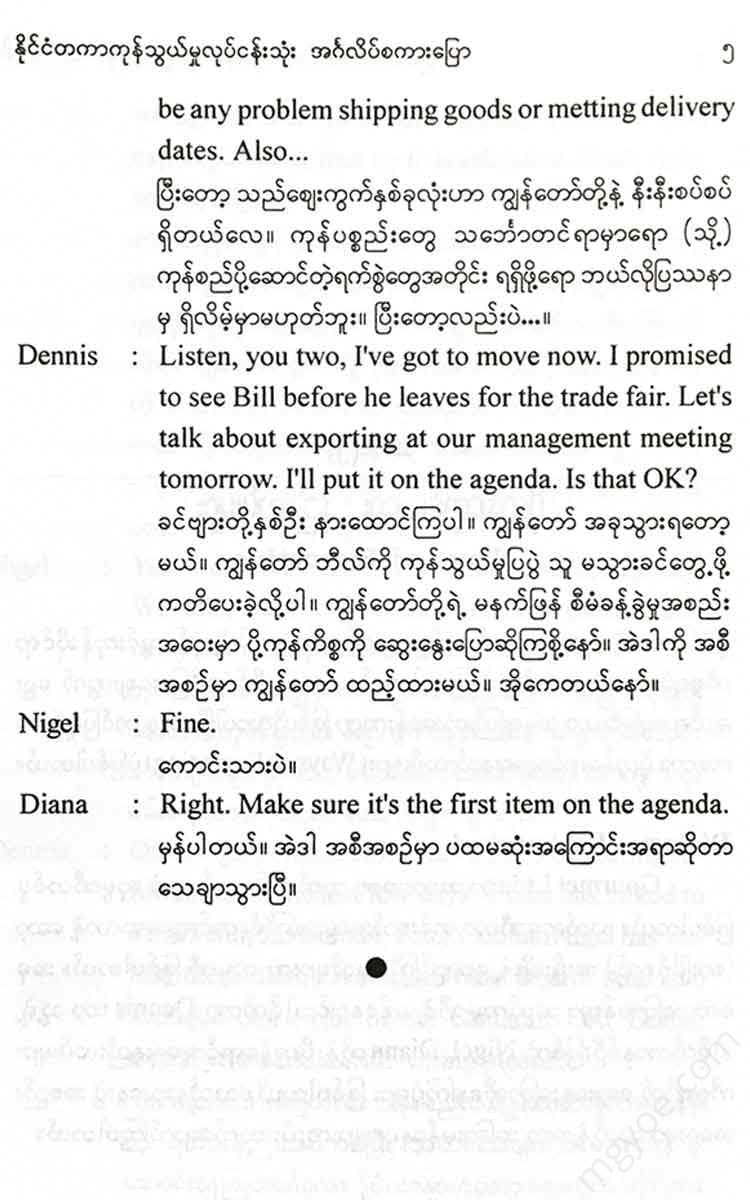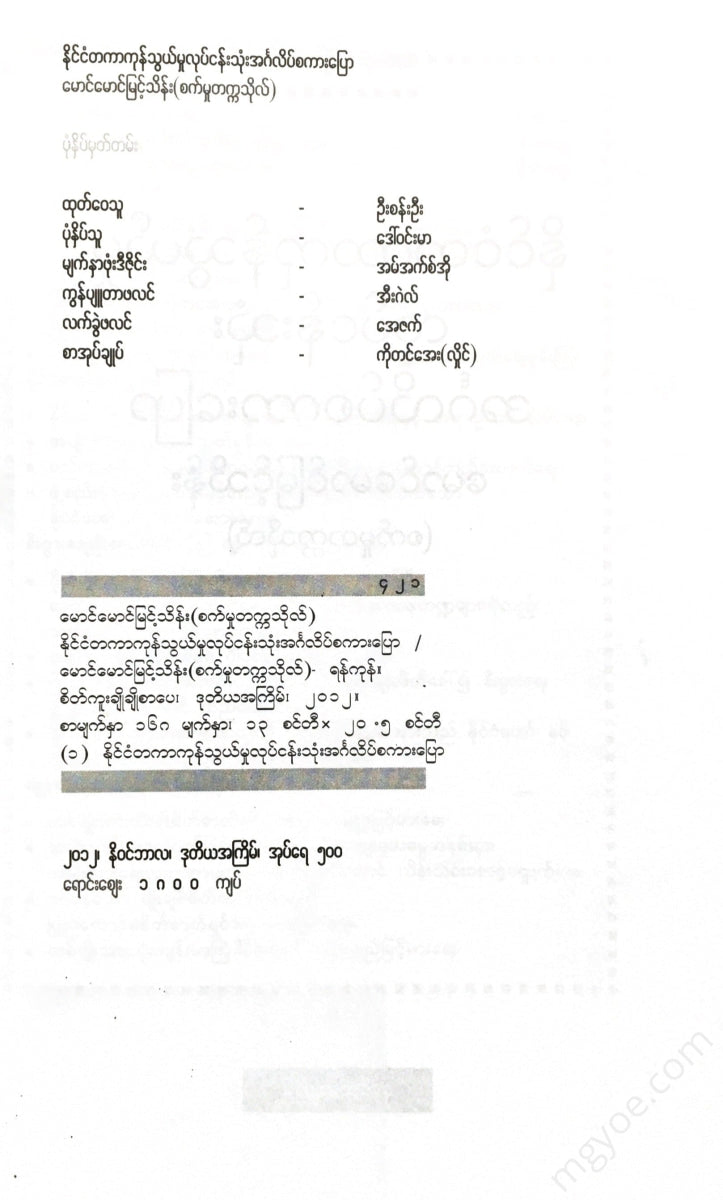စိတ်ကူးချိုချိုစာပေ
Maung Maung Myint Thein (University of Technology) - English for International Trade
Maung Maung Myint Thein (University of Technology) - English for International Trade
Couldn't load pickup availability
Chapter (1)
Choosing a foreign market
Choosing an Overseas Market
When we do international business, we use business English to communicate. Only by speaking this way will our buying and selling transactions go smoothly. Today, we will introduce Choosing an Overseas Market .
Dialogue Background
Gourmet Ltd is a food manufacturing company. The company is known for its range of spices, condiments and sauces. In this interview, Dennis, the company's managing director, is discussing the issue of selecting overseas markets with his two directors, Nigel and Diana.
Dialogue:
Nigel : While you were away in Manchester, Dennis, Diana and I had a few talks together about the way of business happening here.
Dennis... when you arrived in Manchester, I...
Tow and Diana were discussing the economic trends happening here. Dennis: Good. Tell me about it.
Okay, tell me about that.
Nigel : Ok, it's about our business strategy. We think it's time to move into the export field. We should try to break into one of the European markets.
Okay... That's our business strategy. We think it's time to move into the export sector. We should try to penetrate a European market.
Diana : As you know, Dennis, this company can only expand by selling abroad. It would be a big gamble. We've got no exporting experience.
Dennis, as you know, the company can only expand by selling products overseas. That would be a big risk. We have no experience in the export business.
Dennis : Could you explain why we need to look for overseas markets, in your opinion? In your opinion, can you explain why we need to look for overseas markets?
Nigel : There's one very good reason. The home markets are saturated. We've got to start selling abroad now.
We have a very good reason. Our domestic market is already saturated. It's already saturated. Now we have to start selling abroad.
Diana: That's it. We can't expand any more here in Britain. I mean, look at our market share. It's only two percent. And we're fighting to keep that share.
That's the reason. We can't expand further in the UK. I mean, look at the market share. It's only about two percent. And we're fighting to maintain that share.
Dennis: The market's certainly become very competitive, I agree.
I agree that the market has become very competitive indeed.
Nigel : Yes, we're spending a fortune on marketing and sales promotion these days. Our turnover's still going up, but our costs are rising even faster.
That's right. We're taking advantage of this period to explore markets and increase sales. Our total sales are still growing. But our costs are also rising rapidly.
Dennis : So, in your view, this is the right time to market our products overseas.
If so, in your opinion, the time has come to find a market for our products abroad.
Nigle/Diana: Exactly. Yes.
Exactly. Of course.
Dennis: I'm not against the idea, you know. We might be able to penetrate one of the European markets, perhaps France or Germany.
As you know, I'm not against the idea. We could penetrate one of the European markets. Maybe France. Or Germany.
Diana : Why do you choose those countries, Dennis?
Dennis... why did you choose those countries?
Dennis : Well, they've got a lot of potential, haven't they? Don't forget, the French and Germans use a lot of herbs and spices in their cooking. I reckon our products would go down well there.
Okay. There's a lot of potential in those countries. They have it, don't they? Don't forget. The French and Germans use a lot of spices and herbs in their cooking. I think our products would be more suitable there.
Nigel : That's interesting. We also thought of France and Germany, mainly because they're members of the EEC.
That's interesting. We were mainly thinking about France and Germany because those countries are members of the EEC (European Economic Community).
Because of countries.
Dennis : Yes, that could be useful. There'd be no restrictions on trading no import duties or quotas. Yes. That could be useful. There'd be no restrictions on trading no import duties or quotas.
Nigel : And both markets are close to us. There shouldn't be any problem shipping goods or meeting delivery dates. Also...
And both markets are very close to us. What problems do we have in terms of shipping the goods or meeting the delivery dates?
There will be no. And then...
Dennis : Listen, you two, I've got to move now. I promised to see Bill before he leaves for the trade fair. Let's talk about exporting at our management meeting tomorrow. I'll put it on the agenda. Is that OK? Listen, you two. I'm going to go now. I promised to see Bill before he leaves for the trade fair. Let's talk about exporting at our management meeting tomorrow. I'll put it on the agenda. Is that OK?
Nigel : Fine.
sounds good.
Diana: Right. Make sure it's the first item on the agenda.
That's right. You're right, that's the first item on the agenda.

